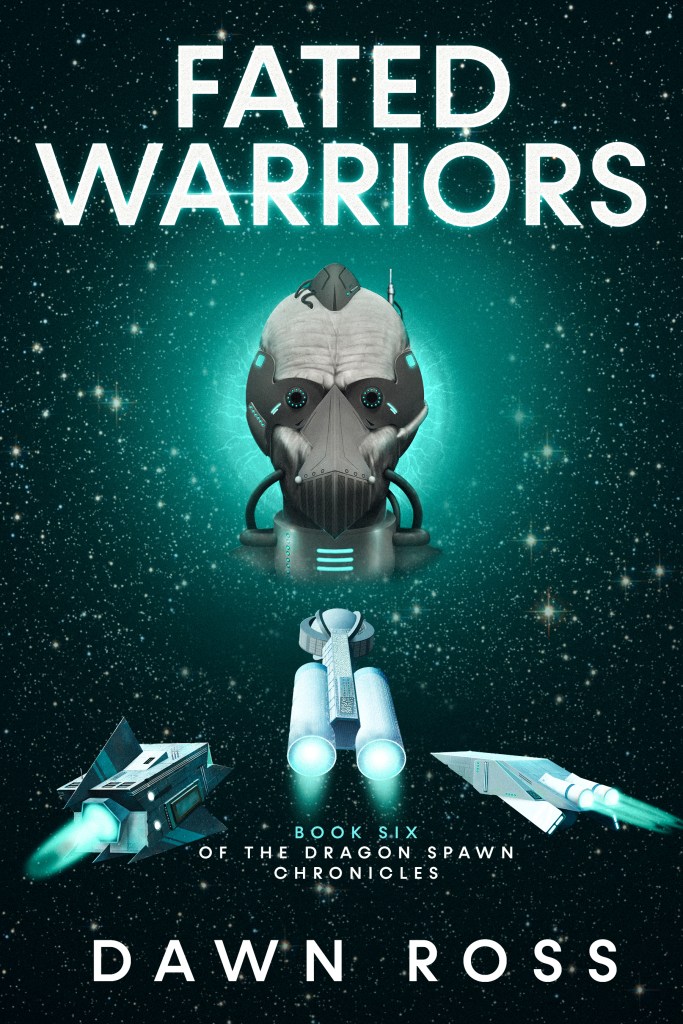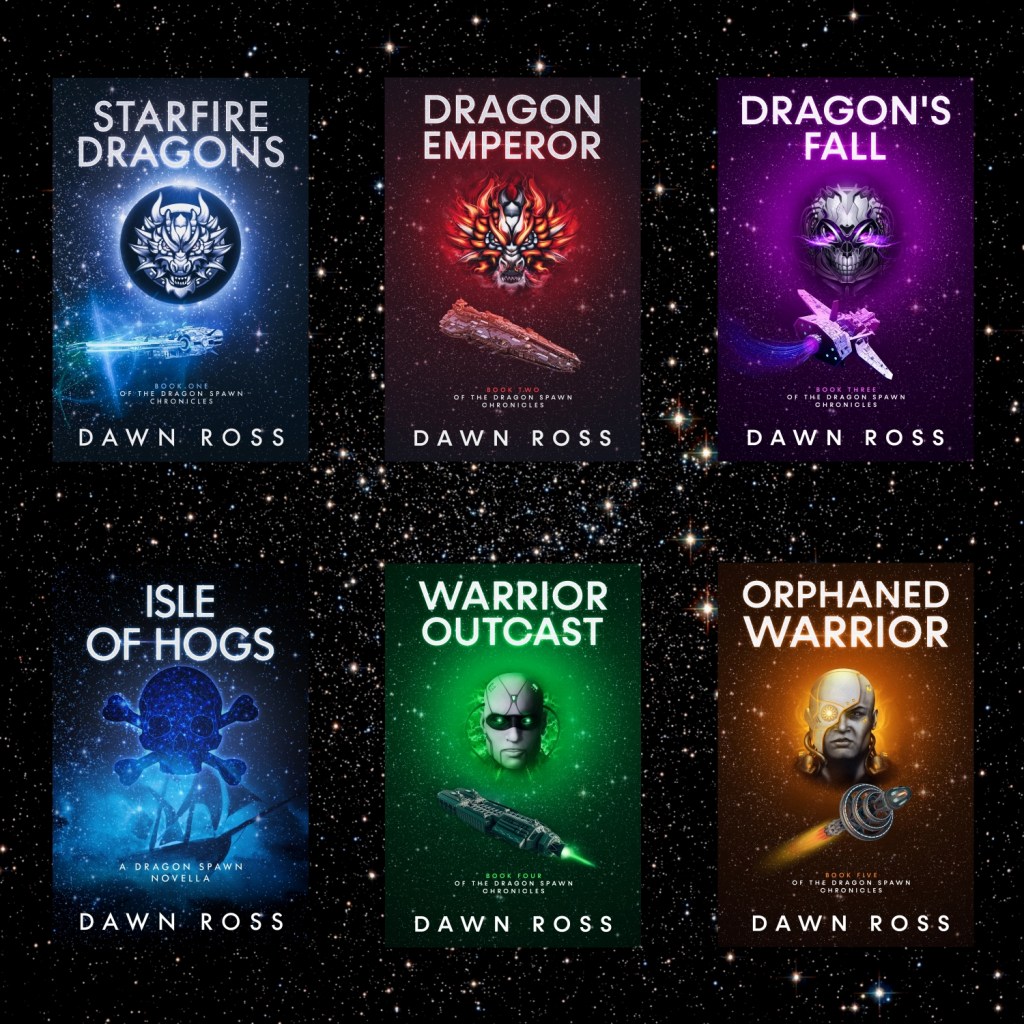⭐⭐⭐⭐⭐
🚀“If you’re looking a series to immerse yourself in, you’ve come to the right place.” –A. West
🚀“This is a great sci-fi adventure full of fast paced action and intrigue.” –Larry B. Gray
🚀“Intense and Fast Paced” –Jody J. Sterling
🚀“I love Sci-fi, and these books were awesome!”
🚀“A diverse set of intriguing characters, mystery, and action make this space fantasy an engaging read.” –Amy
🚀“I’m into book three already and I really love your world.” –Topher Bro-man
🚀“This book is an amazing blend of sci-fi space action and intimate character drama.” –Frasier Armitage
StarFire Dragons: Book 1
Hostilities ignite when a starship commander risks his career and his crew by rescuing two young enemy warriors with dangerous secrets.
Buy any E-Reader format from my direct sale site.
Not in the US? Paste this ASIN into Amazon’s search bar: B082S563MM
Dragon Emperor: Book 2
A young warrior struggles between familial duty and morality when his warmongering father attacks a planet and takes a friend prisoner.
Buy any E-Reader format from my direct sale site.
Not in the US? Paste this ASIN into Amazon’s search bar: B08WLZGVQG
Dragon’s Fall: Book 3
To live up to his father’s lofty expectations, Terkeshi submits to cybernetic enhancements and risks destroying more than his humanity.
.
Buy any E-Reader format from my direct sale site.
Not in the US? Paste this ASIN into Amazon’s search bar: B09PGS9RHK
Isle of Hogs: Book 3.5
Prince Terkeshi tries to adjust to his new life as farmer when pirate cyborgs abduct his new friends.
.
Buy any E-Reader format from my direct sale site.
Not in the US? Paste this ASIN into Amazon’s search bar: B0C3JDPDH2
Warrior Outcast: Book 4
After a Cooperative military spaceship suffers a series of mysterious deaths, Jori must prove his allegiance & expose the real enemy.
Buy any E-Reader format from my direct sale site.
Not in the US? Paste this ASIN into Amazon’s search bar: B0BRQWR281
Orphaned Warrior: Book 5
Can Jori outsmart a cyborg with super-strength, endless cunning, and almost magical power of perception?
.
Buy any E-Reader format from my direct sale site.
Not in the US? Paste this ASIN into Amazon’s search bar: B0CVH7X6GC
Fated Warriors: Book 6

Three ships.
Three warriors.
One fated destination.
.
.
.
Buy any E-Reader format from my direct sale site.
Not in the US? Paste this ASIN into Amazon’s search bar: B0DPBHMQ7X
Spire Wilderness: A Novella
A spacefaring traveler contending with the wilderness. A son challenging a father. And human decency battling against government policy.
Buy any E-Reader format from my direct sale site.
Not in the US? Paste this ASIN into Amazon’s search bar: B0D2ZJ57LW
Books 1-5 Bundle
Purchase books 1-5 with an option to upgade to 6 books and the novellas and get a discounted price.
.
.
.
For a free short-story prequel and a 5-chapter preview of my first there books, sign up for my newsletter below:










